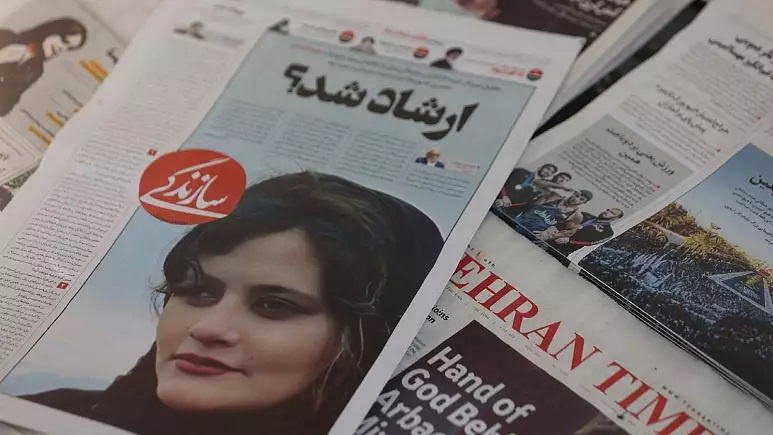Popular Demand For Change in Iran Must be Respected

The popular protests in Iran, involving the cross-section of urban classes throughout Iran, reflect a new and inescapable reality that will likely turn into a deeper and more structural crisis of the state if the current polarization continues. This crisis cannot be put out through force and only a rational and tolerant response that appeases the revolting population has a decent chance of putting out the fire. Although it has started as a "women's movement" over the right to be free from the shackles of the morality police, by now it has turned into a society-wide protest movement that draws its energy from the collective solidarity of individual protesters, who have displayed a new form of political identity, in opposition to the official ideology that has clearly lost its luster among the young generation and it is therefore futile to attempt to suppress it. Rather, the only viable solution is addressing the people's demands, above all the end of morality police and respect for the rights of women to shed their veils without facing any repression.
Contrary to the conservative arguments in Iran, there is nothing organically connected between veil and the system's identity and it is simply an exaggeration to assume that a governmental retreat on the issue of forced veiling and morality police will spell doom for the Islamic Republic. Those who jump to this unsubstantiated conclusion have a simplistic notion of politics and identity, and overlook that there is no possibility of turning back the clock and silencing a growing chorus of demand for change on the part of a bulk of the Iranian population. The more the government resorts to violence and denial of these demands, the worse its political crisis will get. Whereas, a prudent adjustment by conceding to the popular demand, will only make the system stronger, by strengthening the bases of its popular support, which is presently dwindling fast as a result of the growing gap between the modernist and the traditionalist ramparts of Iranian society; the latter's hegemonic sway over the former is a thing of the past and impossible to resurrect in the present context of a mass rebellion against the traditional status quo, zealously promoted by the government of President Raisi, particularly since the end of this Summer.
Henceforth, either Mr. Raisi submits to the will of people and reverses his repressive policies and folds the morality police altogether, or he persists in a politics of denial, which will only marginalize his voice and embolden those who seek to cause a sea change in the Islamic Republic in favor of greater and greater personal freedom. Sadly, the hardline President appears to be out of touch with reality and his incendiary speech, castigating the protesting students as "flies," cannot possibly heal the growing rift at the base of Iranian society today. Fact is that the religious dogma propagated by the government is not embraced by and or accepted by a bulk of the Iranian population that lives in Tehran and other metropolitan areas, as well as provinces, and, as a result, there is now a crisis of legitimacy of state unfolding before eyes, with long-term consequences.
The legitimation crisis of the ruling ideology, that preaches public morality from the above, is bound to persist and worsen in the days to come, unless there is a serious attempt to reconstruct the ruling ideology in favor of liberalization and respect for individual rights, the right of privacy of women in particular, to appear in public without veil. The evolution of Islamic Republic in this direction is today inevitable and, as stated above, does not pose any strategic risk, just as women's freedom in Syria or Turkey does not spell doom for their governments.
The legitimation crisis of the state will deteriorate into a crisis of the state as a whole if the necessary steps to reach a historic compromise with the modernist demands of the urban population are not adopted. Needless to say, these protests affect Iran's national security as well, and it is all the more important to find a speedy formula for change in order to avoid a serious impact on the nation's national security.
Internal turmoil and instability is a net minus for national security, which can be protected today by protecting the students and others protesting for their rights in the streets of Iran, not by repressing them.

